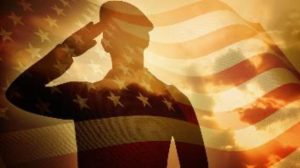Celebrating National Veterans Month

It is November, an essential month for awareness of Veterans. During November, we celebrate National Veterans and Military Families Month. Now is a time to bring to light the unique gambling challenges veterans and their families face and how we can support them in their struggle to address the resulting gambling harm.
Reasons for Gambling
Veterans may gamble for different reasons, but the increased risk for problematic gambling and gambling addiction remains the same. It is the same regardless of the reasons they gamble. Some reasons include:
- To pass the time. Veterans may gamble to pass time while on deployment or at home, struggling to return to civilian life. They could also be looking to pass the time if they struggle to find adequate employment.
- To escape stress. Stress can come from past deployment, which started as missing loved ones but now as stress from missing essential dates or celebrations and feeling detached even while home.
- To cope with emotions. Their emotions could be unregulated, from the excitement and rush of past missions to depression stemming from the consequences and losses experienced while serving. Finally, Veterans may struggle with emotions connected to post-traumatic stress (PTS), inadequate or lack of employment, conflict within their family, and a difficult transition from active duty to civilian life.
Consequences for Veterans
Research that focuses on the negative consequences of Veteran gambling has demonstrated that Veterans are at a higher risk for consequences related to potential gambling harm. To better prepare ourselves as professionals, family members, and friends of Veterans, we need to know the facts associated with gambling as a hidden addiction. Some of these researched facts include:
- Veterans in treatment for PTSD may be as much as 60 times more likely to have a gambling problem than age-matched members of the general population.
- Problem gambling often co-occurs with depression, anxiety, post-traumatic stress, military sexual trauma, and traumatic brain injury.
- 44% of Veterans in treatment for problem gambling reported making suicide attempts, in contrast to 20% of individuals in the general public struggling with problem gambling.
- 66.4% of Veterans seeking treatment for a gambling disorder reported a lifetime history of substance abuse or dependence.
- Gambling disorder is the second strongest predictor of homelessness among Veterans, second to illicit drug use.
Help and Hope
Where there is a problem, we have help and hope waiting to support Veterans and those close to them.
We can all support one another by connecting individuals and community partners with printable resources. The Close Connections: Veterans and Military palm card is a FREE resource to print and distribute.
If someone you know may be struggling with their gambling, please reach out for help. The New York Council on Problem Gambling (NYCPG) operates seven regional Problem Gambling Resource Centers across New York state. Together, these seven centers partner with the NYCPG Veteran Outreach Coordinator. Contact your nearest PGRC for resources, guidance, and confidential support. www.NYProblemGamblingHELP.org.
